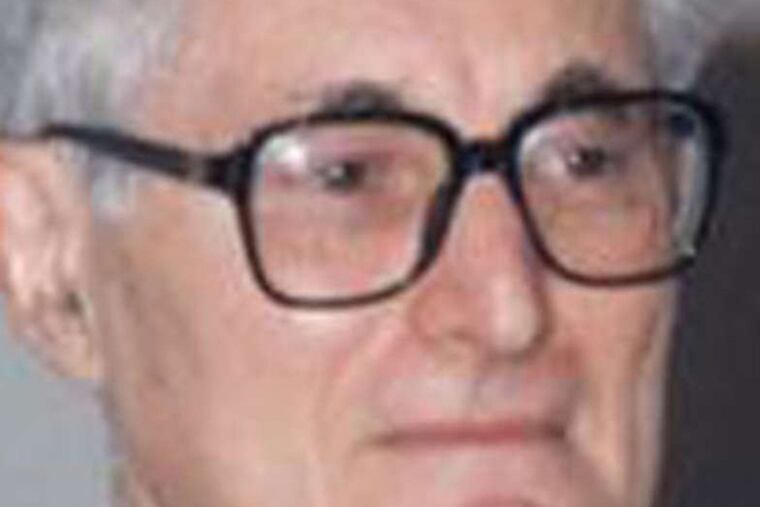Howard Holtzer, 92, Penn medical researcher and professor
Howard Holtzer, 92, of West Philadelphia, a longtime professor and researcher in cell and developmental biology at the University of Pennsylvania's Perelman School of Medicine, died Wednesday, Nov. 5, at his home.

Howard Holtzer, 92, of West Philadelphia, a longtime professor and researcher in cell and developmental biology at the University of Pennsylvania's Perelman School of Medicine, died Wednesday, Nov. 5, at his home.
Dr. Holtzer remained active in his research at Penn until a few years before his death. He is survived by his wife and research collaborator of 64 years, Sybil Holtzer.
His research into the ways cells communicate was described as groundbreaking.
"While doing research in the laboratory of Dr. Paul Weiss in Chicago, he did his first extraordinary experiments and made observations that historically are the foundation of much of the molecular work on inductive signals between tissues and how cells communicate during development," said Bernice J. Koplin, his estate lawyer.
John Sanger, who studied under Dr. Holtzer as a postdoctoral student for three years and then became his colleague for 30, characterized his influence on the field: "He played an important role in looking for signals that helped molecules become a part of creating organs. He was also a leader in differentiating muscle and non-muscle cells."
Dr. Holtzer was also recognized as a stellar instructor.
"He was a very dynamic and engaging mentor for his students," Sanger said. "He was one of the most remarkable and brightest individuals I have ever met."
Born on March 8, 1922, Dr. Holtzer was reared in Brooklyn, N.Y., where he lived until he served in the Army in the Pacific during World War II. He graduated from the University of Chicago, receiving his bachelor of science degree in 1949 and his doctorate in 1952. He joined the faculty of the University of Pennsylvania's anatomy department, now cell and developmental biology department, in 1953, following his postdoctoral fellowship at Columbia University's College of Physicians and Surgeons.
He maintained his interest in cell and developmental biology as an emeritus faculty member at Penn until his late 80s.
"With his passing, Penn and the nation have lost an exceptional mind and an inspiring colleague," Koplin said.
His research took him across the globe, to appointments at universities and institutes in Tokyo, Beijing, London, Rome, Heidelberg, and Berlin. He won a Fulbright Scholarship and was a Guggenheim Fellow at Carlsberg Laboratories in Copenhagen.
A tribute is scheduled for Friday, Dec. 5, at the conclusion of the annual Pennsylvania Muscle Institute annual retreat and symposium. It is to take place from 5:25 to 5:45 p.m. at the Smilow Center of the Perelman School of Medicine, 3400 Civic Center Blvd.
Contributions may be made to the Department of Cell and Developmental Biology, 1157 BRB II/III, 421 Curie Blvd., Philadelphia 19104, in care of the "Howard Holtzer Prize for Research by a Postdoctoral Fellow."